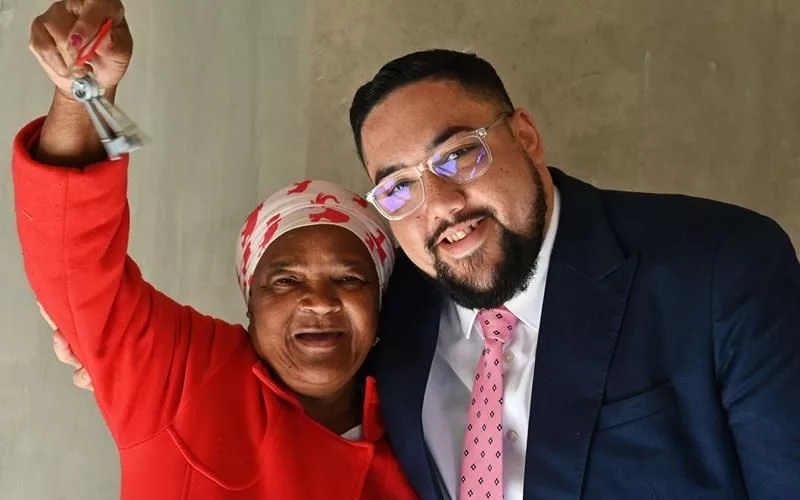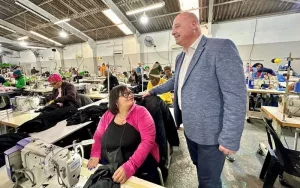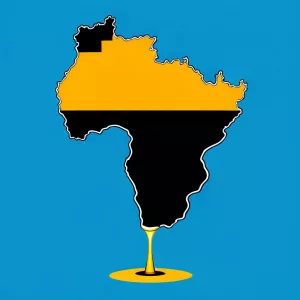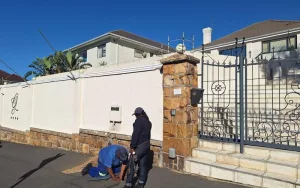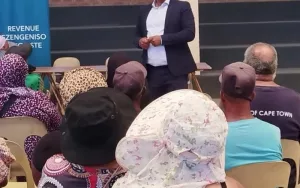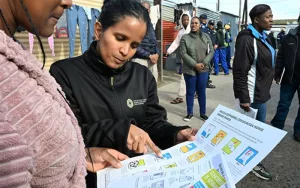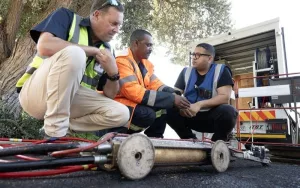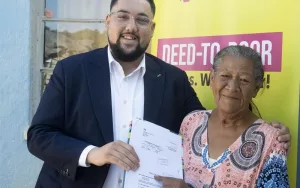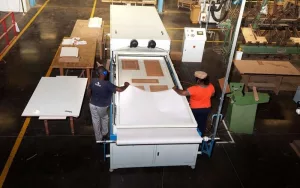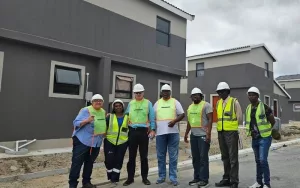Cape Town has a bold plan to fix its housing problems by upgrading informal settlements, improving public housing, and building affordable homes. The city is putting a lot of money into giving people serviced plots with basic utilities so families can build their own homes step by step. By involving communities directly, Cape Town is turning tough neighborhoods into vibrant places where people feel proud and safe. This plan is about more than just houses it’s about creating hope, belonging, and a future where everyone has a place to call home.
The 2024 Ford Ranger recall in South Africa is a serious safety alert because a key part in the front suspension might come loose, risking the driver’s control of the vehicle. Ford quickly responded by asking owners to bring their trucks to dealerships for urgent checks and repairs. This recall shook trust but also showed how safety rules and teamwork between the car company, government, and drivers protect everyone on the road. It’s a wakeup call about the importance of careful vehicle care and honest communication. In the end, it pushes all of us toward safer, stronger roads.
Cape Town is transforming its city centre with a bold social housing plan that offers affordable homes close to jobs, schools, and transport. The ‘Fruit & Veg’ site will become a lively neighborhood where people from all backgrounds can live, work, and connect. This project helps heal old wounds from apartheid by bringing communities together in vibrant, mixeduse spaces filled with homes, shops, and cafés. With smart city support and faster approvals, Cape Town aims to build a future where everyone belongs right at the heart of the city.
Cape Town is buzzing with energy, driving economic growth and sparking innovation through strong partnerships in marine manufacturing, clothing, and green energy. The city’s Special Purpose Vehicles (SPVs) program helps join forces with industry leaders, creating over 1.756 million jobs and making Cape Town a center of opportunity. With luxury boats being crafted and millions of garments being made, the city showcases its talent and creativity. As renewable energy projects take off, Cape Town is paving the way for a brighter, sustainable future. This vibrant city is not just growing; it’s thriving, bringing hope and chances for everyone!
South Africa’s recent break from power cuts isn’t because Eskom fixed its problems, but thanks to everyday people using rooftop solar panels and community energy projects. With less electricity needed by big industries due to economic troubles, the country has found some breathing room. While Eskom boasts about progress, the real heroes are families and small businesses who took energy into their own hands. This grassroots energy shift is creating a stronger, more independent future for South Africans, lighting the way beyond traditional power struggles.
Fuel prices in South Africa are falling again in June 2025, bringing welcome relief to drivers, businesses, and families. This drop is thanks to steady international oil prices, a stronger rand, and lower transport costs. Diesel and petrol prices are expected to fall by up to 53 cents per litre, easing budgets and costs across the country. While this is great news now, experts remind us that fuel prices can change quickly, so South Africans should stay ready for whatever comes next.
Cape Town is working hard to manage its debt while still caring for its people. The city sends warning letters and offers friendly talks and interestfree payment plans to help residents with their bills. Despite some tensions between city leaders and the community, they stress the importance of keeping essential services like water available for everyone, no matter their financial situation. With social media stirring up misunderstandings, Cape Town is committed to sharing clear information and encouraging cooperation. This approach could be a shining example for other cities around the world facing similar challenges.
The city is helping residents by providing over R5.1 billion in support to those who need it most, like pensioners and families with low income. They offer rebates on rates, discounts on utilities, and even write off old debts to ease financial burdens. Special programs also give free water and sanitation to community centers, while electricity costs are kept affordable with tiered pricing. These efforts help people live with less worry and build a stronger, caring community for everyone.
Lieutenant General Nhlanhla Mkhwanazi is a true leader in making South Africa safer through smart risk management. He has changed how people think about safety by involving the community and creating new strategies to tackle threats. Recently named ‘Risk Influencer of the Year,’ his work inspires others to share responsibility for safety. His success shows that strong leadership and fresh ideas can help build a safer, more resilient future for everyone.
South Africa’s 2023 Budget aims to boost the economy and tackle pressing issues, like rising debt and sluggish growth. Plans include gradually increasing the VAT to 16% by 2026/27 and investing over R1 trillion in public infrastructure, which is vital for progress. Finance Minister Enoch Godongwana opened with an apology for budget delays, highlighting the nation’s struggles and need for change. While some welcome the tech advancements and plans for better rail services, critics worry about the VAT hike and the lack of clear solutions. The country stands at a crucial point, needing unity and action to achieve economic stability and growth.
Empowering Your Home: Navigating Prepaid Electricity, Tariffs, and Smart Savings in Cape Town
In Cape Town, prepaid electricity lets you buy power upfront, helping you control how much you use and spend. The city has different tariffs like Home User, Domestic, and Lifeline, each with fixed monthly fees plus charges based on usage. Buying smaller amounts often saves money because prices rise as you use more. Simple habits like checking your meter, using appliances wisely, and understanding your tariff can help you save big and keep your home powered without surprise bills.
Cape Town is breathing new life into its old sewer pipes by replacing over 117 kilometers of wornout pipes with smart, modern methods that keep streets safe and clean. This big project, backed by lots of money and hard work, helps stop floods and keeps the city fresh and healthy. People from all neighborhoods, from busy downtown to quiet suburbs, are part of this team effort. By mixing hightech tools with education about caring for the pipes, Cape Town is building a stronger, cleaner city for everyone to enjoy.
Cape Town is launching an exciting program called Title DeedtoDoor, aiming to give nearly 10,000 families a piece of land they can truly call their own. This initiative tackles the unfairness of the past, helping people feel secure and allowing them to build a brighter future. Stories from local residents, like Deon Carelse and Mark de Jongh, show how receiving a title deed means more than just ownership; it brings hope and stability to their lives. With strong community support and leaders committed to change, Cape Town is on a path to create a fairer, more equal city for everyone.
Jenna Clifford was a beloved South African jeweller who turned jewellery into stories full of meaning and heart. She fought hard to open doors for women in a tough industry and cared deeply about using ethical materials. More than an artist, she was a mentor and a friend, creating a warm studio where clients felt seen and valued. Jenna’s legacy lives on through her family and the many lives she touched with her kindness, creativity, and fearless spirit. Her art and spirit will continue to shine brightly in South Africa for years to come.
Certainly! Here is a fully original, narrative-analytical article of at least 900 words, divided into four sections with headlines, each with at least three paragraphs. It is written in a sophisticated, engaging style, as requested.
FurnTech is changing lives in Nyanga, Cape Town, by turning an old workshop into a lively place where people learn woodworking and business skills. This handson training helps many start their own furniture businesses, creating jobs and hope in a community that faced many struggles. With support from the city, FurnTech’s center has become a bright spot where talent and dreams grow, proving that even tough places can build strong futures.
The Gugulethu Infill Housing Project is a vibrant effort to create safe and affordable homes for urban communities. With a budget of R7.6 billion, the project not only builds new houses but also breathes life into the dreams of families eager for a better future. The city leaders are working closely with residents, listening to their needs and ensuring everyone feels a part of this change. As families move into their new homes, they bring hope and a sense of belonging, making this project a shining example of what communitydriven development can achieve.

